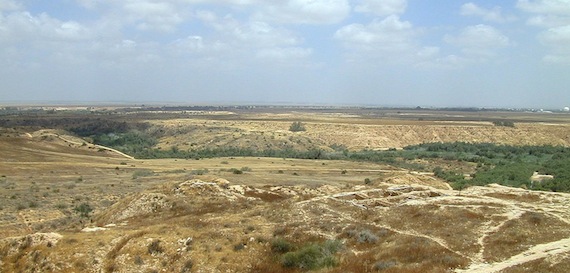2 min read
How to Cope When the Will of God is Hard
The Will Of God Also Includes The Presence Of God, And Thus, His Comfort.
Wayne Stiles
:
Jan 21, 2018 10:00:00 PM

Sometimes it seems the Lord leads us into a life that can’t possibly be His will. What started with such promise has become such a challenge. It’s tough to know what to do next.

(Photo by Photodune)
What do you do when the life God has promised you looks nothing like the life God has given you?
God had promised a son to Sarai and her husband, Abram. Yet at the same time, God prevented conception. This is the will of God?
What God said is a lesson we need to hear.
The Will of God—A Tough Place to Be
The tension eventually proved too much for Abram’s wife, Sarai. It seemed the only thing worse than the barren land she lived in was the barren womb she carried.
So Sarai pointed to Hagar, her Egyptian maid, and told Abram to provide a child through her (Genesis 16:1–16). The culture allowed for this custom, but it was never the will of God. After Hagar conceived, she despised Sarai, who then became resentful and mistreated her maid. Not surprisingly, Hagar fled.
The plan backfired.
God Hears and Sees
The Lord found Hagar “by a spring of water in the wilderness, by the spring on the way to Shur” (Gen. 16:7). The location of the spring reveals that Hagar intended to head back home—to Egypt.
- But the Lord told the expectant mother to return to Sarai and to name the baby Ishmael—meaning, “God hears”—with the explanation, “for the Lord has heard of your misery” (v. 11).
- Hagar called the Lord El Roi, “the God who sees me” (v. 13).
- She named the spring by which she sat Beer Lahai Roi, which could be rendered, “the well of the Living One who sees me” (vv. 13–14).

(Photo: Nahal Besor, perhaps the area where Hagar wandered. Courtesy of Pictorial Library of Bible Lands.)
Running from the Will of God
When the will of God gets tough, there emerges a recurring tendency. Note the pattern:
- Abram had run to Egypt to escape a famine (Genesis 12:10–20).
- Sarai had turned to an Egyptian maid to escape barrenness.
- Hagar had run to Egypt to escape misery.
But every plan of escape, apart from the will of God, found each person back at the same place of having to trust the Lord all over again.
Hagar’s obedient return to a miserable and tough situation reveals her faith in the Lord who met her on the run. The meanings of the names “God hears” and “God sees” are constant reminders of how best to respond in desperate times.
When the Will of God is Tough
In seasons of seemingly inescapable despair, the Lord wants us to turn to Him rather than “run to Egypt.” As we wait on the Lord, we cling to His promise that He waits with us and will provide for us, for God hears our prayers and God sees our needs.
The difficult will of God also includes the presence of God, and thus, His comfort.
God hears. God sees. Those names become the Lord’s promises to us—and they are our reasons for trusting Him, even when circumstances offer no rational hope for relief.
Tell me what you think: When the will of God is hard, what promise of God do you cling to? To leave a comment, just click here.
Adapted from Wayne Stiles, “Hagar: Meeting God on the Run,” The Wise and the Wild: 30 Devotions on Women of the Bible (IFL Publishing House: Plano, TX, 2010), 7-8.
Discover How Scripture Relates to Your Life
Learn the top 6 Lessons from Visiting the Holy Land more than 20 times in 21 years with Dr. Wayne Stiles, a longtime devotional scholar who is passionate about sharing the practical application of bringing God's Word to life.
Click here to leave a comment.
-1.png?width=5230&height=1198&name=unnamed%20(4)-1.png)


.jpg?width=350&name=Wayne-books-350wide%20(1).jpg)




